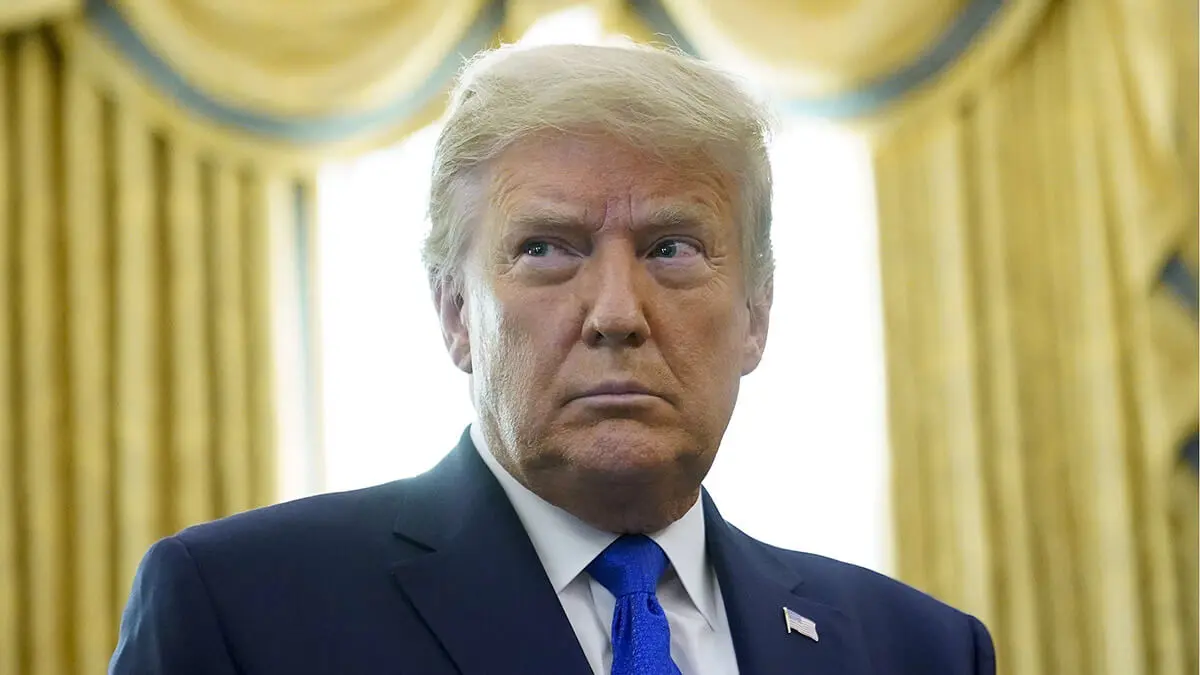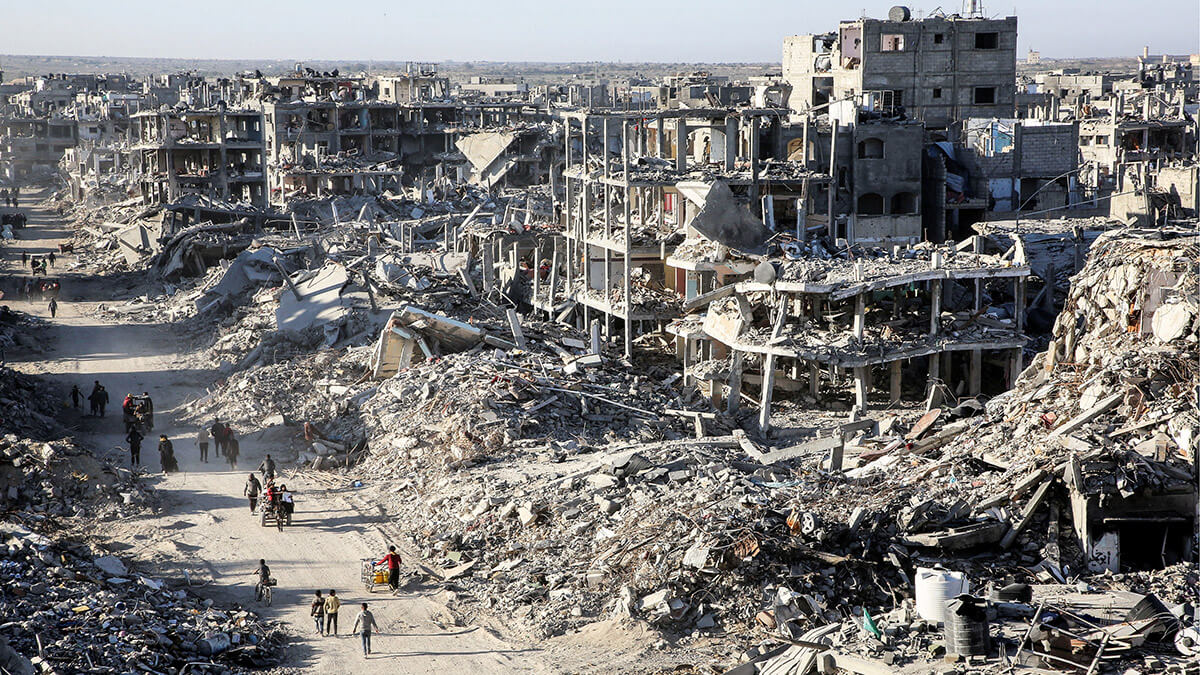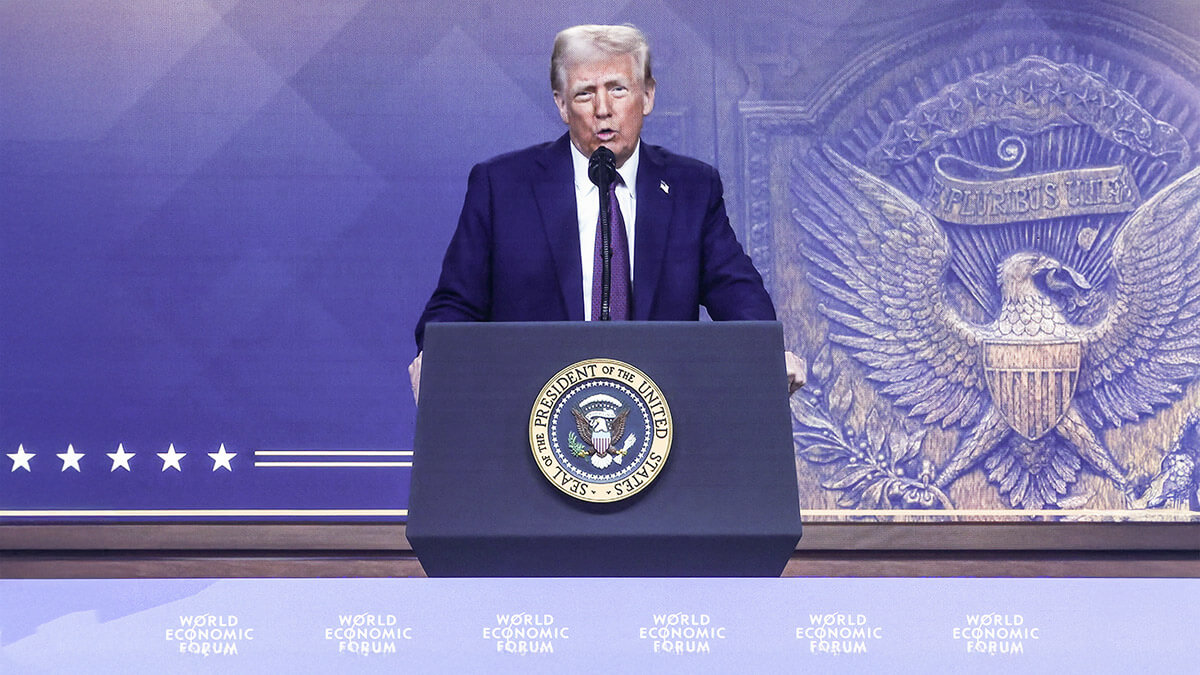Trump proposes moving Palestinians from Gaza to neighbouring countries such as Jordan and Egypt

The President of the United States, Donald Trump, has proposed that Jordan, Egypt and other Arab countries take in more Palestinian refugees from the Gaza Strip with the aim of reducing the population in the enclave and starting the reconstruction of the area from scratch.
During a telephone call with Abdullah II of Jordan, the US leader highlighted the possibility of building housing and transferring more than a million Palestinians from Gaza to neighbouring countries, as he announced to journalists on board Air Force One.
‘I told him I would love him to take on more responsibility, because I'm looking at the whole Gaza Strip right now and it's a mess, it's a real mess,’ said Trump, who also plans to discuss the issue with Egyptian President Abdel Fattah Al-Sisi.
‘Something has to happen, but right now it is literally a wrecking site. Almost everything is destroyed and people are dying, so I would rather get involved with some of the Arab nations and build housing in a different place where I think they could perhaps live in peace,’ the president explained, indicating that the possible housing ‘could be temporary’ or ‘could be long-term’.
The Jordanian state news agency, Petra, reported on Trump's call with the monarch, although it made no mention of the relocation of the Palestinians. Jordan already hosts more than 2.39 million registered Palestinian refugees, according to United Nations figures.
In this regard, Jordanian Foreign Minister Ayman Safadi has stated that his country is committed to ‘ensuring that the Palestinians remain in their land,’ reiterating Amman's ‘firm and unchanging’ position in favour of a two-state solution.

For its part, the Egyptian Ministry of Foreign Affairs issued a statement rejecting ‘any forced displacement of Palestinians’. The ministry did not specifically mention Trump, but reiterated Egypt's position against ‘the displacement of Palestinians from their land through forced evictions’.
According to Cairo, such actions ‘threaten stability, risk further spreading conflict in the region and undermine opportunities for peace and coexistence’. It also, like Jordan, called on the international community to support the achievement of a two-state solution to the Israeli-Palestinian conflict.
In addition to this plan, Trump also confirmed the reactivation of arms supplies to Israel, including the large bombs that Joe Biden had suspended in May, during the war between Israel and Hamas.

Currently, the conflict has been paralysed by a ceasefire reached by both sides. During this truce, Hamas is obliged to release the Israeli hostages in exchange for Israel releasing Palestinian prisoners from jail, many of them serving life sentences for committing terrorist attacks.
The ceasefire has already faced its first obstacles due to Hamas' decision not to release all the non-civilian women, as stipulated in the agreement.
However, Israel has already announced that the dispute has been resolved and that the terrorist group will release six hostages in two batches this week, including the civilian woman Arbel Yehoud and the soldier Agam Berger.
Three Israeli hostages are expected to be released on Thursday including 20-year-old Agam Berger and 29-year-old Arbel Yehoud. The third hostage has not been identified yet. Bring them all home now.🎗️ pic.twitter.com/i43nfNLoJt
— Noa Tishby (@noatishby) January 27, 2025
Jerusalem also indicated that Hamas had finally sent a list detailing the conditions of the remaining hostages to be released in the first 42-day phase of the ceasefire, which began on 19 January.
Once these problems had been resolved, the army allowed hundreds of thousands of displaced people from Gaza to return to the north of the Strip through the Netzarim Corridor from Monday morning.
The office of the Prime Minister, Benjamin Netanyahu, stated that Israel had reached the agreement with Hamas after ‘strong and decisive negotiations’ and reiterated that it ‘would not tolerate any violation of the agreement’.









